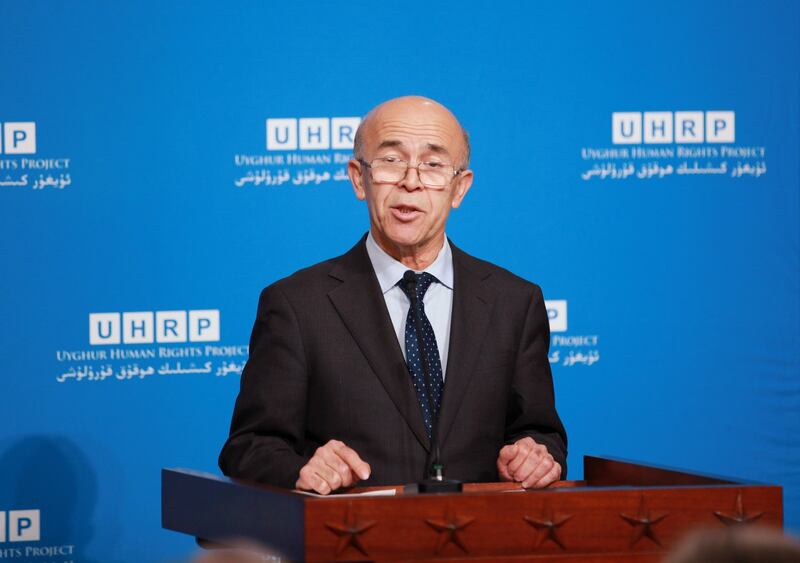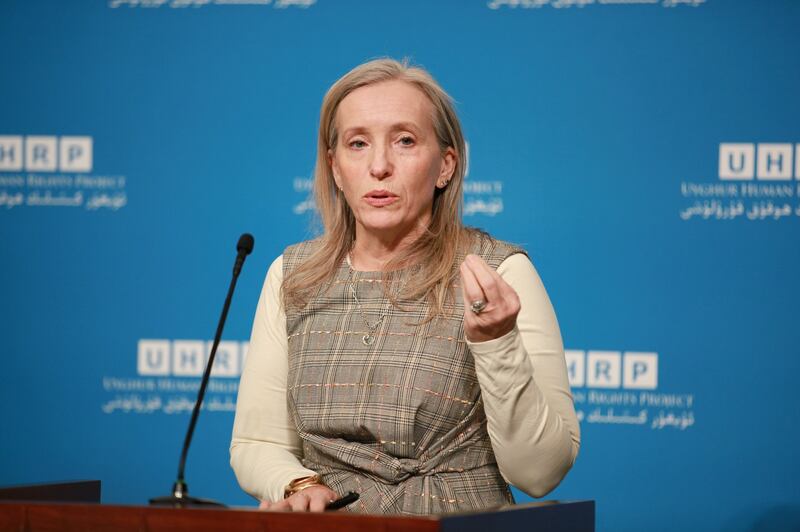Uyghur activists and U.S. lawmakers on Monday marked two years since an independent tribunal in London handed down a decision that China’s government was committing genocide against Uyghurs.
The Uyghur Tribunal on Dec. 9, 2021, declared that it was "satisfied" that Beijing had pursued a "deliberate, systematic and concerted policy with the object of so-called 'optimizing' the population" of Uyghurs in the far-western Xinjiang province in order to reduce birth rates.
It implicated Chinese President Xi Jinping in the policies, which it said were also intended to erase Uyghur culture and assimilate the mostly Muslim ethnic minority through internment and forced relocation.
At the commemoration, which was held in the Speaker Nancy Pelosi Caucus Room of the House of Representatives, the Uyghur activists spoke of the dual need to recognize the severity of what is occuring in Xinjiang but also to pursue tangible actions to stop it continuing.

“By holding this event, we want to highlight the importance of commemorating the victims of the Uyghur genocide and honor the survivors,” said Omer Kanat, executive chairman of the World Uyghur Congress and director of the Uyghur Human Rights Project.
“But we must act without delay on real action, for accountability, deterrence and a practical humanitarian response,” he said.
Call for action
Rep. Young Kim, a Republican from California, said she had family members who defected from North to South Korea and so understood the pain of many of the Uyghurs in attendance worried about family in Xinjiang who “face genocide in modern-day concentration camps.”
Kim said recognizing the genocide was only the start of the responsibilities of people in free countries, and said Congress had to act through bills like the Uyghur Policy Act, which has failed to pass in past congressional session but now has dozens of co-sponsors.
Among other things, she said, the bill would introduce a Uyghur language program at the Foreign Service Institute, which teaches American diplomats, so that the U.S. Embassy in Beijing and each American Consulate in China would have available Uyghur speakers.
Others said action was not the sole responsibility of government.

Kelley Currie, who served as U.S. ambassador-at-large for global women’s issues and the deputy U.S. ambassador to the United Nations during the Trump administration, said she was dismayed by the hurried “white washing” of Beijing by American business in recent months.
On its final day in power, the Trump administration, too, declared that China is committing a “genocide” against Uyghurs. President Joe Biden’s decision to carry on that assessment contributed to strained relations between Beijing and Washington over the past three years.
But the recent thaw in ties had made for a strange spectacle, she said.
Business as usual
America's CEOs "filled the room in San Francisco last month, giving Xi Jinping standing ovations" after a speech he delivered at a high-profile dinner, Currie said, describing their appeals for increased American engagement with a "genocidal regime" as "morally bankrupt."
The worst culprit, she said, was the financial services industry, “who were the first ones to race back to China” and “grovel” with Chinese officials in order to protect their assets after the recent thaw in ties.
That stood in stark contrast with the finding that genocide of Uyghurs is taking place at the hands of China’s government, Currie noted.
“It’s time for all of us to demand an end to business as usual,” she said. “It’s time that our actions become commensurate with our words.”
Edited by Malcolm Foster
